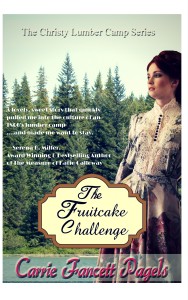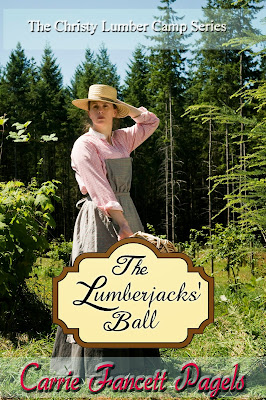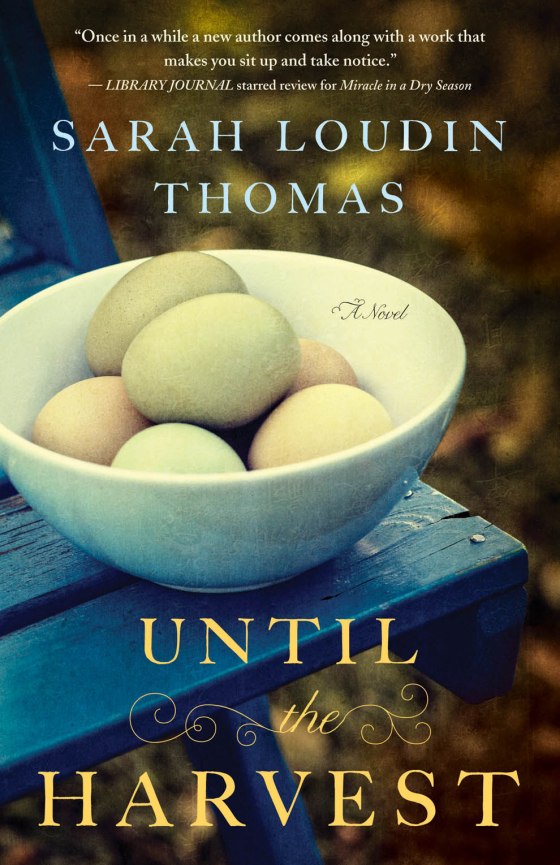Let both grow together until the harvest.
~*
ARE YOU PACKED YET?”
Henry took a big bite of oatmeal to
delay answering his mother’s question. She quirked an eyebrow at
him.
“Son, I asked you a question.”
Henry gulped his milk. “I
thought maybe I’d take a semester off,” he said.
His older
sister Sadie snorted and rolled her eyes. She always had an opinion.
Perla cut a look at her daughter, then turned her attention back to
Henry. “What in the world for? It’s not like there’s anything
you need to do here. Your education is too important to shirk.”
“I’ve
talked to most of my professors, and they understand. All I have to
do is get ahold of Dr. Stanley to see if he’ll excuse my final
paper. Then I can just pick up next August. I might even be able to
take extra classes so I can still graduate in four years.” Henry
carried his empty bowl to the sink and ran water into it. “You and
Grandma need a man to take over here—to keep things up, maybe earn
some money.” He swallowed hard. “With Dad gone, I figured I’d
better stay a while.” He squared his shoulders and stood up
straighter.
“You’ll never make anything of yourself without a
degree,” Sadie said. She had just gotten her first job as a
librarian at a university up in Ohio. Apparently they’d been very
nice about giving her a week off for the funeral. Henry thought she
was kind of full of herself at the moment, but she could be all
right. If she wanted to. He reminded himself that she loved his
father, too, even if he’d only been her stepfather.
Mom rubbed her
temples and reached for her coffee cup. “I think you should go
back, but if you can get approval from all of your professors, I
suppose it’ll be all right for one semester.”
Henry let it rest at
that. He was trying to behave as though he cared about school for his
mother’s sake, but honestly, what did it matter? What did anything
matter anymore? He’d keep going through the motions for her sake,
but he wasn’t sure he’d ever go back to school. It occurred to
him that he’d be free to pursue his music now, but that thought
caused a stab of pain, and he brushed it aside, as well.
Later that
day, Henry called Professor Stanley about his paper on Soil Genesis
and Classification. Stan the Man as the kids called him was a real
stickler, but Henry was confident his father’s dying would move
even a crusty old guy like Dr. Stanley.
“Hello?” Dr. Stanley
always sounded curt.
“Dr. Stanley, this is Henry Phillips. You’ve
probably heard that my father passed away recently, and I’m
planning to take a semester off to take care of my mother. Which
means I won’t be able to get my paper in after all.”
Silence
stretched and just as Henry started to say something more, Dr.
Stanley cleared his throat. “I’m sorry to hear about your loss,
but I’m sure your father would want you to meet your obligations in
school and in life. The paper should have been completed by now and
will be due as scheduled.” There was a rustling of papers. “If
you intend to pick back up in an ensuing semester, you’ll need this
credit completed. I’m looking forward to reading your work.”
“But
there’s no way I can get it done considering everything.” Henry
heard a whine in his voice and tried to regain his composure. “I’m
sure we can work something out.”
“Henry, without that paper, I’ll
be forced to give you a failing grade. As I said, I look forward to
reading your work. Please give my condolences to your family.” He
heard a click and then a dial tone.
Henry stormed out of the house
and slammed through the door of his dad’s workshop. Gordon Stanley
was a jerk. Like the fool had any idea what Dad wanted for him. It
was the last straw. What did he think he was going to do with a
degree in agriculture, anyway? Be a farmer like his grandfather? He’d
been hearing stories about John Phillips all his life, and somehow
he’d thought it might be cool to follow in his footsteps. But what
difference did a degree make? His grandfather died young. His father
died young. He would probably die young, too.
So why not go ahead and
flunk out of school and just live his life however he wanted? The
worst thing that could happen would be dying, and apparently that was
going to happen regardless. He picked up a wood chisel and considered
what kind of damage he could do with it.
A half-finished footstool
sat on the workbench. Henry settled the point of the tool against the
top and grabbed a mallet. He whacked the chisel, and it bit deeply
into the wood. Henry hit it again, and a chip went flying. He looked
at the marred surface of the stool and felt hot tears rise. He flung
the tools down and cursed.
Henry gripped the edge of the worktable
until he felt his fingernails sink into the wood. It hurt. He tried
to focus on the pain, finding it preferable to the guilt, anger,
resentment, and slurry of other emotions threatening to drag him
under. He’d always followed his father’s advice—done what was
expected of him. Maybe it was time he made some decisions of his own.
Maybe it was time to stand on his own two feet.
A Mason jar stood on the counter with a
handful of finishing nails inside. Henry thought back to the night
his father died and how Charlie Simmons supplied the Mason jars of
moonshine his buddies drank. He’d gone to school with Charlie, who
played a mean guitar—used to really like him. Maybe it was time to
reconnect with his old buddy. Henry eased his grip, ignoring the
blood oozing from a torn cuticle. Now that was a good idea. Charlie
might be the solution to several of his problems.
~*~
“Why you feel the need to have a job is
beyond me.” Lenore examined her manicure and seemed to be
satisfied. “Your allowance should be more than enough to meet your
needs. You ought to be going to school.”
Margaret sighed. She’d
almost been ready to leave the two-story house in the middle of town
for the peace of Emily’s house in the country when her mother
wandered into her room.
“I like working. It gives me a feeling of
satisfaction. And Emily Phillips is a lovely person.” Why did she
even try to explain herself?
“But domestic work—it’s beneath
you. And it’s an embarrassment to me.”
“Helping people should
never be beneath anyone.” Of course her mother would be embarrassed
by her. But that would likely be the case no matter what she did. It
gave her a certain perverse pleasure to aspire to a life her mother
disdained.
Lenore made a derisive sound, then brushed her nails
against her perfect white blouse. “Well, the least you can do is
take Mayfair with you. I kept her out of school again today—she
looked flushed—and she’s certainly more suited for menial work.
Goodness knows she isn’t likely to have much success in this world.
Between her idiotic diabetes and her attitude, it’s a wonder she’s
made it this far.”
Mayfair sat curled in a window seat in the room
the girls shared. Margaret didn’t know if her mother was even aware
her younger daughter was present. Not that she’d speak more kindly
if she did. Margaret wanted to point out that her parents had
probably somehow passed diabetes down to Mayfair, but she knew better
than to try to get her mother to take responsibility for anything.
“I
don’t mind going.” Mayfair’s whisper softened Margaret’s
heart. She’d be only too glad to have her sister along today, and
Emily adored the child. It had been two weeks since the funeral, and
the older woman’s sorrow still hung about her like a too-large
dress. Mayfair seemed to cheer her.
“There, now. Maybe I’ll be
able to get something done with both of you out from underfoot.”
Lenore sailed out of the room and down the stairs.
Margaret looked at
her sister. “Has she ever done anything?” The pair giggled. “Grab
your stuff. Emily will be glad to see you.”
When they walked through
Emily’s back door, they overheard her on the telephone.
“No, I
understand. Send him over anyway. Maybe some time on the farm will be
good for him. I can surely find plenty for him to do.” She paused,
listening. “Yes, he’ll have to be willing to do it, but maybe
it’ll be easier for his ole granny than for his mother. Young
people are often like that.”
Margaret made some noise so Emily
would know they’d arrived. Was Henry the mysterious “he” coming
over to work on the farm? She remembered how vulnerable he looked
lighting the fire in his father’s workshop. Stoic and sad all at
once.
Emily came into the room as Margaret and Mayfair hung up their
coats and removed their boots.
“Leave those wet shoes on the rug
there. It’ll sop up any dampness. Mayfair, I’m so glad you came.
You’re not sick, are you?” Mayfair shook her head. “Excellent,
you can help me make some oatmeal cookies.” Emily reached out and
gently squeezed the girl’s arm, knowing a hug might be
overwhelming. “Henry’s coming, and I’m sure he still eats
enough for two men his size.”
Mayfair smiled and headed for the
kitchen. Emily turned to Margaret. “Perla’s having a time with
that boy. Seems he got into some trouble last night. I won’t go
into the details, but I think the two of them need a little time
apart.” She placed a hand in the small of her back and stretched.
“Getting too old to keep up with the young people, but I’d do
just about anything for that boy.” A gleam lit her eyes. “He can
clean out the chicken coop.” She shot Margaret a meaningful look.
“I don’t expect you to help him, but if he’s willing to talk,
it might do him good to have someone more his age to listen.”
Margaret
schooled her expression. She had no intention of mucking out chicken
poop with Henry. Although his father had just died. She supposed she
should be digging deeper for some Christian charity.
“I thought he’d
be back in school,” she said by way of not answering Emily.
“Apparently he got mad about some professor expecting him to keep
up with his assignments in spite of his loss. Perla says he isn’t
going back this semester.” She squeezed her eyes shut for a moment
then opened them again. “Time and the Lord will set him right. We
just have to put up with him until then. I’m sorry you have to see
his bad behavior, but I know you’re a kind girl and won’t hold it
against him.”
Fifteen minutes later, Henry slammed through the back
door. Margaret paused in her scrubbing of the bathroom sink when he
thundered into the house. She heard Emily speak to him, then he
reversed his trip with a similar amount of noise and bluster. When
the door slammed the second time—he went back out, she
assumed—Margaret heaved a sigh and marveled that someone Henry’s
age could be so immature.
Emily appeared in the doorway. “You’ve
got it shining in here,” she said, admiring the spotless fixtures.
“Henry’s out in the chicken coop. Might not be the time to join
him, but maybe you’d be kind enough to check on him in twenty
minutes or so?”
Margaret nodded. She’d check to make sure he
hadn’t killed any chickens, if nothing else. She and Mayfair could
go gather the eggs in a little while. Her sister always enjoyed being
around animals of any kind.
After finishing in the bathroom and
changing the sheets on Emily’s bed, Margaret went looking for her
sister. She found her nibbling an oatmeal cookie and reading Little
House in the Big Woods for the umpteenth time.
“Only one
cookie, Mayfair. Want to help me gather the eggs?”
Mayfair lit up.
She placed her half-eaten cookie on a cloth napkin and ran for her
shoes and coat. “Let’s take Henry some cookies,” she suggested
as she went.
“He’s been cleaning out chicken mess. He’s too
dirty to eat right now.”
“Take him a wet washcloth.” Mayfair
slid her arms into her jacket. “A warm one.”
Margaret rolled her
eyes. If it had been anyone other than her sister suggesting such a
thing, she wouldn’t even consider it. She got an old washcloth out
of the linen closet and dampened it in water as hot as she could
stand. It would cool quickly. Mayfair took up a plate of cookies, and
they walked out to the chicken house.
Henry sat on the ramp the
chickens used to come and go, muttering to himself.
“We brought you
cookies,” Mayfair said. He looked up as though someone had just
offered to rob him of his chickens at gunpoint.
“And Margaret has a
cloth for you to clean your hands.”
Margaret stuck out the cloth.
Henry took it, rubbing it over his hands like he’d been hypnotized
and told to do it.
“It’s warm,” he said.
“We knew you’d be
cold.” Mayfair smiled and handed him the plate of cookies. “And
hungry.”
He handed her the soiled cloth and bit into a cookie.
“Good,” he said through the crumbs.
“Emily and I made them.”
Mayfair sounded pleased, and Margaret realized this might be the
longest conversation she’d heard her sister have with anyone
outside the family.
“How’re you coming with the coop?” Margaret
asked.
Henry looked over his shoulder. “Guess I’m about halfway.
Probably hasn’t been cleaned out since my grandfather died forty
years ago.”
“Surely your father . . .” The words died on
Margaret’s tongue. Well, that had been insensitive.
Henry
stiffened. “I’m sure he did. It was just a way of talking.” He
shoved the remainder of a cookie in his mouth and handed the plate
back to Mayfair. “Guess I’d better get back to it.” He shot
Margaret a look she chose not to interpret.
“We’re just here for
the eggs,” Margaret said and moved to the side where she could
enter and check the laying boxes. Mayfair balanced her plate on a
rock and scurried ahead of Margaret. Inside, she carefully collected
the few eggs, even reaching beneath two hens still on their nests.
Margaret didn’t like to do that, since a hen pecked her on the back
of the hand one time. But the chickens let Mayfair reach beneath them
as though they wanted her to have their eggs.
Job finished, the
sisters walked back to the house leaving Henry to chip bird mess off
the roosts. Margaret felt bad for him. It wasn’t a nice job, and
somehow she felt she’d made it worse for him. If only he weren’t
so—what? Angry? She wasn’t sure, but whatever it was, it made
Henry Phillips hard to be around.
3
~*
HENRY WASN'T SURE HOW MUCH money his
parents had or how his father had left things, but he figured Mom
would need some help now. He could always get a job in fast food or
bagging groceries, but he had an idea he could make money more easily
than that. And Charlie Simmons could be his ticket to quick cash.
The
first few nights he rambled around with the Simmons boys, he snuck
out his window after he thought his mother was asleep. But she knew
what he was up to—at least he was pretty sure she did—so he opted
to stop trying to hide it. The previous night he’d strolled out the
front door at ten, telling Mom not to wait up for him. The look on
her face made his stomach clench, but he chose to ignore it. She
should be grateful he was willing to take risks in order to provide
for her. A man had to do what a man had to do.
Of course, he hadn’t
really wanted to hike through the woods to break up a rival family’s
still in the dark of night. He hadn’t really enjoyed running
through the woods, tripping, falling, banging his knees, and having
shots fired over his head. Henry knew the Simmonses were one of only
a few families still running bootleg liquor and maybe breaking a few
other laws, but he was determined to prove he could handle anything
they dished out. He had to, if he wanted a fair cut of the profits.
When Mom sent him to Grandma Emily’s to help out this morning, he’d
been secretly relieved. Not that he’d show it, but he felt somehow
anchored on his grandmother’s farm. He felt safe, like he had a
purpose. Not to mention connected to Dad. They’d spent a lot of
time over there together, helping his grandmother with the garden or
the few animals she kept.
He remembered one time when they were
weaning the milk cow’s latest calf. He was only ten or so and liked
messing around with the calf while she was in the stall next to her
mother, scratching her behind the ears and petting her wooly head.
Daisy didn’t think much of it, but there was little she could do.
Then he’d been in the calf lot one day when Daisy ambled in for the
evening milking and saw her chance. He’d had his back to the
annoyed cow when she charged, and his father roared, “Stop,” in a
voice like thunder. Poor ole Daisy skidded to a stop, and he’d
escaped into the barn just in time to avoid a trampling. Dad ran
shaking hands over his shoulders and down his arms. He’d laughed a
little and said he’d take a boy over a milk cow any day and warned
him to stay clear of Daisy. Thinking back on it he wondered that Dad
hadn’t yelled at him for being in the calf lot when he shouldn’t
have been, but his father had never been one to yell or berate. He
just gently admonished.
He sat on the ramp leading up to the now much
cleaner chicken house and swallowed past the lump in his throat.
Chickens scratched near his feet, even though there wasn’t much for
them to peck at this time of year. But they went over and over the
ground around the coop just the same. He envied their mindless
pursuit. They weren’t agonizing over what to do with their lives.
They were simply looking for something good to eat.
His stomach
rumbled on cue. He wished he had some more of those oatmeal cookies
Mayfair brought out. The one he’d eaten had been delicious, but
then Margaret ruined his appetite. That girl seemed way too uptight.
Probably a real prude—all prim and proper. But she did look out for
her little sister, and Henry liked Mayfair. Something about the
younger girl made him feel like he should take care of her.
He stood
and dusted the seat of his britches. It was probably lunchtime by
now, and Grandma was sure to feed him well. Although he was almost
too dirty to go inside. Once he warmed up, he’d probably reek of
chicken manure. But who cared? It wasn’t like he had anyone to
impress. Margaret might be cute if she loosened up, but that wasn’t
likely.
Henry ambled down to the house and kicked his work boots off
at the front door. He stepped inside in his stocking feet and
shrugged out of his jacket. He probably should have left it out-side,
too, but he dumped it on a hook near the door instead.
He heard
laughter from the kitchen. Margaret and Mayfair were singing along
with the radio. It sounded like Captain and Tennille doing “Love
Will Keep Us Together.” He peeked around the corner and saw
Margaret singing into a wooden spoon while Mayfair danced next to
her. They joined in together on the last chorus and collapsed into
giggles. Henry had been determined to hang onto his foul mood but
smiled in spite of himself.
“Not bad,” he said, walking into the
room.
Mayfair ducked behind Margaret and smiled shyly past her
sister’s shoulder. Margaret blushed in a way that almost made her
look pretty. Even with all those freckles. Maybe if she did something
with her hair. . . .
“Lunch is just about ready,” Margaret said,
reaching for the radio knob as John Denver came on.
“Wait, I like
this one.” Henry bumped Margaret’s hand as he turned up the
volume.
He listened to the opening lines, then jumped in with “Thank
God, I’m a country boy.” By the end of the second verse, Mayfair
joined in. Margaret looked a little surprised but joined her voice to
the din with the third verse. They made such a racket, Emily came
into the room, saw what was what, and added her soprano. They were
all dancing and carrying on by the time the last notes died away.
Henry wished for his own fiddle so he could play another chorus or
two.
Emily flicked off the radio as laughter replaced the music.
Mayfair positively glowed, Margaret looked more relaxed than Henry
thought possible, and for a moment he forgot he was mad at the world.
“Well, now, that was a fine way to start our lunch off,” Grandma
said. “You’re all good singers, though I can’t say much for
your dancing.” They laughed some more. “Henry, go wash up, and
we’ll have us some of this fine potato soup Margaret has cooked
up.”
As Henry scrubbed his fingernails with a soapy brush, he let
the pleasure of singing in his grandmother’s kitchen sink in a bit.
He almost wished he could stay here. He didn’t care if he ever saw
the Simmons boys again. He could quit school for good and run his
grandmother’s farm. She had the chickens, and they could get a pig
to raise come spring. Maybe even a milk cow. Now that would be good.
Margaret probably knew how to make butter—she seemed like the kind
to have a knack for those sorts of things.
Henry stopped scrubbing
and dropped the brush in the sink. He rinsed his hands and dried off.
But then again, his mother needed him. And anyway, all that taking
care of animals would be a lot of work. And it would definitely tie
him down. He’d end up losing the chickens to foxes, the pig would
get foot rot, and the cow would go dry. Farming was a whole lot of
trouble, and he reckoned life was hard enough. The heck with John
Denver and his stupid song.
As he dragged back into the kitchen,
Margaret dished up
soup and put bowls on the table, along with a loaf of warm
soda bread and a jar of peaches that probably came from the tree down at the cold spring. Well, the world didn’t much suit
him at the moment, but that didn’t mean he couldn’t enjoy
lunch.
As they sat, Emily folded her hands and bowed her head.
Margaret and Mayfair did the same, but Henry didn’t feel like
bowing before a God who would take his father. He watched
the women as his grandmother said grace.
He had the feeling Margaret wasn’t all that into praying, either, but Mayfair seemed completely absorbed. She clasped her hands and her thumbs almost touched her nose. She squinched her eyes as Emily thanked God for the food, the hands that prepared it, and finally for Henry, who had been such a help. Henry
wanted to bat the prayer away as if it were a cobweb drifting
over his face, but he sat still out of respect for his grandmother.
Once the prayer ended, Henry tasted his soup. Man, it was
good. Rich and buttery. He broke off a hunk of bread and
slathered it with apple butter. Margaret might not be a barrel of laughs, but she sure could cook.
“Oh, it does my heart good to see a man eat after he’s worked
all morning.” Emily patted Henry’s arm. “Your grandfather
was lean, but he’d eat a whole pan of biscuits if I let him. He’d
even pass up dessert for biscuits and jelly. That man could eat.”
Henry thought his grandmother looked almost as proud as
she would if she’d just said, “That man saved a child from a
burning building.”
Grandma turned to Margaret. “Will you help me make a casserole this afternoon? It’s my week to take something to
Angie Talbot.”
Margaret agreed and added some more soup to Henry’s bowl without asking. He started to get annoyed but decided
to eat the soup instead.
“Angie Talbot. Didn’t her twin sister die a while back?” Margaret asked.
“Yes, poor thing. She’s always kept her feelings to herself, but
I know it was hard on her. Of course, Frank Post is over there most every day, but he’s old as the hills himself.”
Henry considered how ancient you had to be for his grandmother to think you were old as the hills. “How old is he?”
“Oh, both of them must be near about ninety. I think they were sweethearts once a long time ago. Or maybe it was Liza
he was sweet on.” Emily sopped up the last bit of her soup with
a piece of bread. “I doubt anyone remembers. At any rate, the members of Laurel Mountain Church take turns looking after Angie. One of those visiting nurses comes in just about every
day, but we like to see to our own.” She cocked her head and
looked at Henry as if she was trying to decide something.
“If you’re up to it, you could spend some time walking the old fence line this afternoon to see what needs fixing. I’ve been thinking about getting a cow.”
Margaret made a sound like she was going to speak, but
Emily kept talking.
“Before I make up my mind, I need to know if that fence
will hold an ornery old milk cow. You think you can manage
something like that?”
Henry had thought he might go home and sleep the afternoon
away after his rough night, but suddenly, walking the fields in the thin January sunshine seemed like a much better idea.
“I reckon I could.”
“Good. About the time you finish, we should be ready to go over to the Talbot place. You can drive us.”
Margaret acted like she was going to say something again,
but Emily shot her a look. “Let’s gather these dishes and get
started on that casserole. Henry, take some cookies with you.”
Mayfair scurried to wrap cookies in a napkin for Henry.
She ducked her head as she handed them over. “Can I come
with you?”
“What?” Henry wasn’t sure he’d heard the girl.
“I want to come, too,” Mayfair said, peeking out from beneath long lashes. “Like Laura helping her Pa on the prairie.”
“Mayfair, you stay here and help Miss Emily and me.” Margaret sounded annoyed.
“Oh, let the child go.” Emily made shooing motions toward her grandson and Mayfair. “She could do with the fresh air.”
Margaret made a sour face but didn’t stop Mayfair as she
ran to put on her boots and jacket. Henry didn’t especially
want her along but decided it would be worth it just to annoy
Margaret. He made sure the girl had mittens and a woolen hat,
and they headed out into the bracing air.
~*~
“Honestly, Emily, I’m not sure Mayfair needs to be spending
time with Henry. I know he’s your grandson, but he doesn’t
impress me as super stable right now.”
Emily’s eyes flickered. “What do you mean?”
“Well,” Margaret went to the refrigerator to pull out chicken
and vegetables for the casserole. “He was rude at the house
after the funeral.”
“I thought he found a spot for Mayfair.”
“Only
after
he nearly bit our heads off.”
“I suppose you might excuse a young man for being testy on
the day he buried his father.” Emily pulled a two-quart casserole
dish out of a cabinet and handed it to Margaret. “What else?”
“He’s throwing away his education, and I hear he’s been
spending time with the wrong crowd.” Margaret felt a tingle
of triumph, shadowed by shame. She shook it off.
“He still has time to finish school. Could be he just needs to
settle himself and get used to his father’s being gone. Goodness
knows, it’s going to take me a while. As for the wrong crowd, I’ll
have to agree with you there, but I think it’s important we not judge someone by the company they keep.” Her eyes twinkled.
“Jesus spent plenty of time with questionable people—tax collectors, prostitutes, lepers, beggars. Henry could do worse.”
Margaret puffed her breath out in frustration. “I know you love him, but maybe you’re too willing to see past his flaws.”
“Oh, Margaret, I forget how unsentimental you can be.”
Emily patted her on the arm, and Margaret wanted to shake
the kindness off. The only time her parents were nice to her
was when they wanted something. She had to remind herself
not everyone was like that.
“But if you ignore his flaws, how is that going to help him
improve?” Margaret thumped pie dough on the counter and
began to roll it out like she was smoothing out all of Henry’s shortcomings.
“Not ignore the flaws, but love the person in spite of them. There’s a difference,” Emily said.
Margaret turned back to the refrigerator to hide her confusion. She didn’t quite understand what Emily was talking about, but she decided not to write it off completely. Maybe she should be more gracious about having Henry around. It would give her
a chance to watch Emily and her grandson and see how people who loved each other were supposed to act.
Sarah Loudin Thomas, Until the Harvest Bethany House Publishers, a division of Baker Publishing Group, Grand Rapids, Michigan, © 2015.
 Coming July 7, 2014!
Coming July 7, 2014!













 Aunt Ingrid's words return at just the right moment, as Carmen remembers her profound truth:
Aunt Ingrid's words return at just the right moment, as Carmen remembers her profound truth:
 This is Katie Ganshert's fourth novel I have read ~ she has a following of real life issues. I like her reference to dead bones ~ for God can bring back to life and restore what is yielded to Him.
This is Katie Ganshert's fourth novel I have read ~ she has a following of real life issues. I like her reference to dead bones ~ for God can bring back to life and restore what is yielded to Him.



 Life intermingles from generation to generation. How much has come before affects where we are going. Face what you're up against head on. Truth revealed.
Life intermingles from generation to generation. How much has come before affects where we are going. Face what you're up against head on. Truth revealed.

